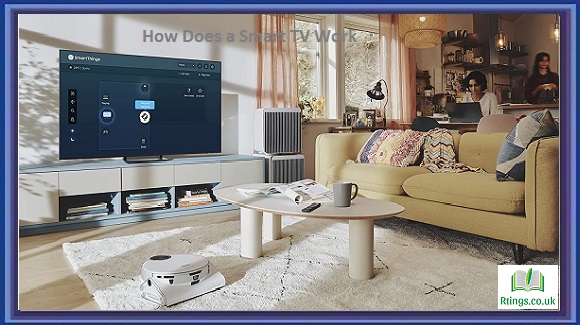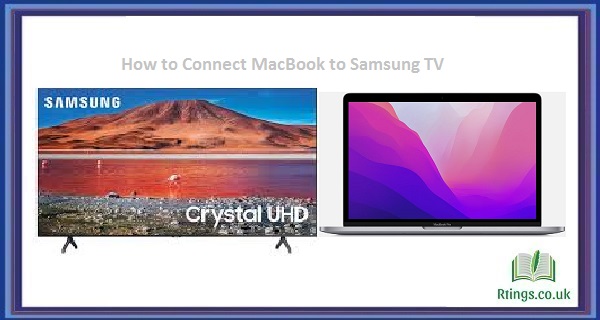Smart TVs are a recent innovation in the world of entertainment, and they offer a level of interactivity and connectivity that traditional televisions cannot match. They are essentially traditional televisions that have been enhanced with internet connectivity, allowing them to stream content from the internet and provide access to various online services.
In this article, we will explore how smart TVs work, what makes them different from traditional televisions, and the features and benefits they offer.
What is a Smart TV?
A smart TV is a television set with internet connectivity and built-in software allowing it to access content from online sources. These sources can include streaming services like Netflix and Hulu and social media sites like Facebook and Twitter. Smart TVs can also be used to browse the internet and access various other online services.
Internet connectivity is the primary difference between a smart TV and a traditional television. Traditional television is a standalone device designed to receive signals from broadcast networks or cable providers. A smart TV, on the other hand, can connect to the internet and access content from various online sources.
How Does a Smart TV Work?
A smart TV works by using a combination of hardware and software to provide access to online content. The hardware includes the television itself and various components that allow it to connect to the internet and process data. The software consists of the operating system that runs on the television and any apps or services installed on the device.
The hardware components of a smart TV typically include a processor, memory, and storage. These components work together to allow the TV to process data, run applications, and store information. In addition, a smart TV will typically have various connectivity options, including Wi-Fi, Ethernet, and Bluetooth, which allow it to connect to the internet and other devices.
The software components of a smart TV set it apart from traditional television. Smart TVs typically run on a customized operating system like Android or Linux. This operating system provides a platform for running applications and accessing online content. Smart TVs can be equipped with various apps, including streaming services, social media platforms, and other online services. These apps can be accessed through a user interface typically accessed through a remote control or a smartphone app.
What are the Features of a Smart TV?
Smart TVs offer a variety of features and benefits that are not available with traditional televisions. These features include:
- Internet Connectivity: The ability to connect to the internet and access online content is the primary feature of a smart TV. This allows users to stream movies, TV shows, and other content from various sources.
- App Store: Many smart TVs come with an app store that allows users to download and install various applications. This can include streaming services like Netflix and Hulu and social media platforms like Facebook and Twitter.
- Voice Control: Many smart TVs are equipped with voice control technology, which allows users to control the TV using voice commands. This can be particularly useful for searching for content or changing channels.
- Screen Mirroring: Some smart TVs offer screen mirroring, which allows users to display the screen of their smartphone or tablet on the TV. This can be useful for sharing photos, videos, or other content with friends and family.
- Gaming: Some smart TVs have gaming features that allow users to play games directly on the TV. This can include traditional console games, as well as mobile games that have been optimized for TV play.
- Smart Home Integration: Many smart TVs can be integrated with other smart home devices, such as smart speakers and home automation systems. This allows users to control all of their devices from a single interface.
What are the Benefits of a Smart TV?
There are several benefits to owning a smart TV, including:
- Convenience: Smart TVs make accessing a wide variety of content from a single device easy. Users can stream movies, TV shows, and other content without switching between multiple devices.
- Personalization: Smart TVs allow users to customize their viewing experience by downloading and installing apps and services that fit their interests and preferences.
- Cost Savings: Smart TVs can save users money by eliminating the need for additional devices, such as streaming sticks or gaming consoles.
- Future-Proofing: As more and more content becomes available online, owning a smart TV ensures that users can access this content without upgrading their devices.
- Improved User Experience: The ability to control the TV using voice commands or a smartphone app can make the viewing experience more enjoyable and user-friendly.
Are there any Limitations to Smart TVs?
While smart TVs offer a wide variety of features and benefits, there are also some limitations. These include:
- Price: Smart TVs can be more expensive than traditional televisions, particularly if they have larger screens or higher resolutions.
- Complexity: Smart TVs can be more complex than traditional televisions, which can overwhelm some users.
- Privacy and Security: Smart TVs are connected to the internet, which can raise privacy and security concerns. Users should be aware of the risks associated with online activity, such as data breaches and identity theft.
- Compatibility Issues: Not all apps and services are compatible with all smart TVs. Users should check compatibility before downloading and installing apps and services.
- Software Updates: Smart TVs require regular software updates to maintain performance and security. These updates can be time-consuming and may require users to update their devices manually.
Conclusion
Smart TVs are a recent innovation that offers interactivity and connectivity that traditional televisions cannot match. They are essentially traditional televisions that have been enhanced with internet connectivity, allowing them to stream content from the internet and provide access to various online services.
Smart TVs work by using a combination of hardware and software to provide access to online content. They offer a variety of features and benefits, including internet connectivity, app stores, voice control, screen mirroring, gaming, and smart home integration.
While smart TVs offer many benefits, some limitations are also to consider, including price, complexity, privacy and security concerns, compatibility issues, and software updates. Overall, smart TVs are an excellent option for users who want to access a wide variety of content from a single device and enjoy a more personalized viewing experience.
Frequently Asked Questions (FAQs)
What is a Smart TV?
A smart TV is a type of television equipped with internet connectivity and other advanced features that traditional televisions do not have. Smart TVs allow users to access online content such as streaming services, social media, web browsing, apps, and games. They often have built-in Wi-Fi and Ethernet connectivity and HDMI and USB ports to connect to other devices.
How does Smart TV work?
Smart TVs work by using a combination of hardware and software to provide access to online content. The hardware includes processors, memory, and storage components, while the software includes operating systems and apps. The smart TV connects to the internet via Wi-Fi or Ethernet, allowing users to download and install apps from an app store. Once installed, these apps can stream movies, TV shows, and other content, as well as access social media, play games, and browse the web.
What are the benefits of owning a Smart TV?
There are several benefits to owning a smart TV, including convenience, personalization, cost savings, future-proofing, and improved user experience. Smart TVs make it easy to access a wide variety of content from a single device. Users can customize their viewing experience by downloading and installing apps that fit their interests and preferences. Additionally, owning a smart TV can save users money by eliminating the need for additional devices, such as streaming sticks or gaming consoles. As more and more content becomes available online, owning a smart TV ensures that users can access this content without upgrading their devices. Finally, controlling the TV using voice commands or a smartphone app can make the viewing experience more enjoyable and user-friendly.
Are there any limitations to Smart TVs?
While smart TVs offer many benefits, there are also some limitations to consider, including price, complexity, privacy and security concerns, compatibility issues, and software updates. Smart TVs can be more expensive than traditional televisions, particularly if they have larger screens or higher resolutions. They can also be more complex than traditional televisions, which can overwhelm some users. Additionally, smart TVs are connected to the internet, which can raise privacy and security concerns. Not all apps and services are compatible with all smart TVs, and regular software updates are required to maintain performance and security.







